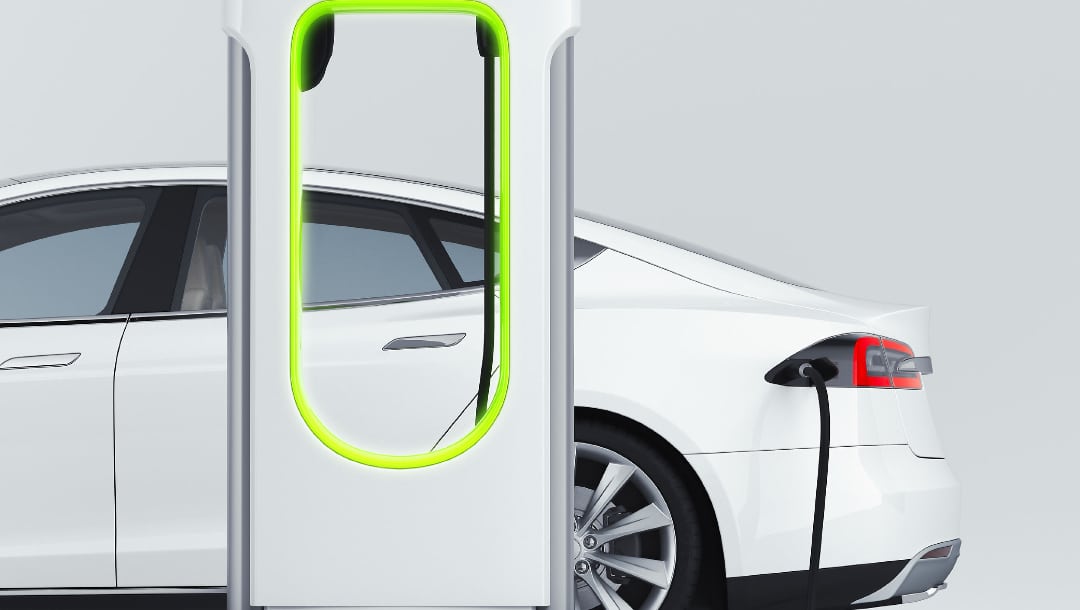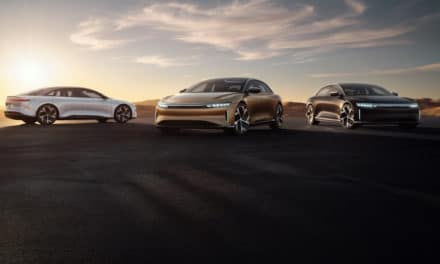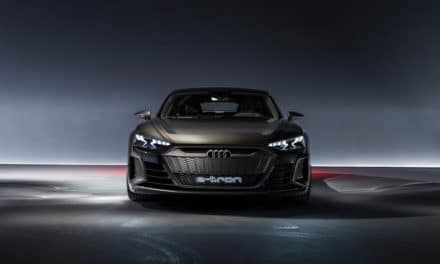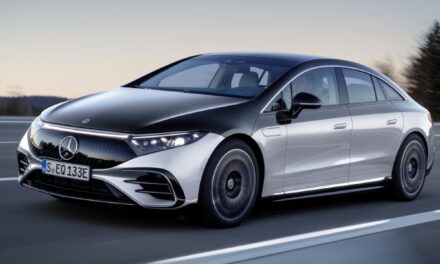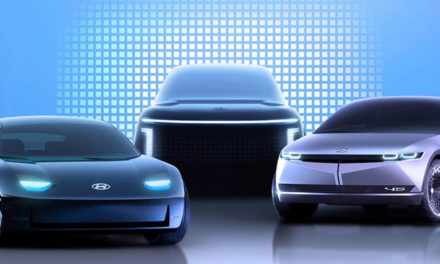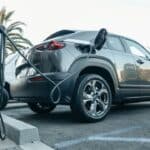This is a very in-depth article tackling some of the frequently asked questions about electric vehicles! It is a work in progress piece that will be added to as questions come up. We hope you find the information useful as a lot of effort went into the piece. Send us a message if you have a question you are dying to know more about!
Top FAQs for Electric Car Consumers
- Are electric cars worth the price?
- Will electric cars take over?
- What are the benefits of an electric car?
- Why are electric cars so fast?
- Can you improve an electric car’s range by driving slowly?
- Should I buy a used electric car?
- Can you add a backup reserve battery pack to an electric car?
- Can an electric car be charged while being driven?
- How much does it cost to charge an electric car?
- Is it safe to tow an electric car?
- Can electric cars be made cheaper?
- Should I charge my electric car to 100%?
- Should I let my electric vehicle battery deplete to 0%?
- Should I charge my electric car every night?
- Do all electric cars have the same type of charging?
- How far can the average EV go on a single charge?
- How much does an electric car weigh?
- Will electric vehicles last more than 500,000 miles?
- Do electric cars pollute more than combustion cars?
- Are hydrogen vehicles better than electric?
- Do electric cars make noise?
1. Are Electric Cars Worth the Price?
A lot to unpack on this question, vehicles are well known for being depreciating assets. It is rare to return a profit on a standard vehicle. Therefore, everyone purchasing a vehicle should anticipate losing money. The total money spent is tough to nail down exactly, major factors are initial price, fuel cost, maintenance, depreciation, and insurance. We will compare an electric vehicle to a combustion engine vehicle driven 15k miles per year.
Gasoline Vehicle Costs
On average, the cost to own a standard gasoline vehicle driven 15k miles per year is about $8,800.
Financing
The average MSRP for a gasoline vehicle in 2020 is about $38,000. We will put down $10,000 and finance the rest for a 60-month term. Today’s (December 2020) auto loan average rates are 5.27 %.
$28,000 financed over 5 years will cost $3,912.
Fuel Costs
On this day the national average for fuel is $2.15 and sedans average 24.2 mpg.
This equates to a yearly fuel cost year at $1,332.64. 5 year approximate is $6,663.20.
Maintenance
The average maintenance cost per year for a gasoline vehicle is 8.9 cents per mile. Per year that is $1,335. Multiplied by 5 and you have $6,675.
Depreciation
Depreciation can be a major factor that is not directly paid. Yearly average depreciation is $3,700 a year. Total after 5 years $18,500.
Insurance
Finally, the average insurance rates are $1,200 a year for a 5-year total of $6,000.
Calculated Total for Gasoline Car Ownership
Our calculated total for gasoline vehicle ownership comes in at $8,350.04 per year and $41,750.20 over 5 years.
Electric Vehicle Costs
The average MSRP for an electric vehicle as of today is a bit higher than a standard gasoline vehicle, $55,000. We anticipate this to change in the near future, just looking at a quick mix of future models the average would come in closer to $40k. For the purpose of this answer, we will use today’s average.
Financing
Repeating the same method above we would put $10k down and finance the rest ($45,000) for 60 months at 5.27%. Total financing would come to $6,287.
Energy Costs
Today the national average for a kWh of energy is 13.19 cents. Electric vehicle consumption is measured in kWh per 100 miles. On average this is 33 kWh which correlates with our data gathered on available EV’s. This would equate to $652.90 a year or over 5 years $3,264.52.
Maintenance
The average maintenance cost per year for an electric vehicle is 6.6 cents per mile. Per year that is $990. Multiplied by 5 and you have $4,950.
Depreciation & Insurance
The rest of the calculations would typically remain steady. Depreciation ($18,500), insurance ($6,000).
Calculated Total for Electric Car Ownership
Our calculated total for electric vehicle ownership comes in at $7,800.30 per year and $39,001.52 over 5 years.
The difference between an electric vehicle over a gasoline vehicle is $2,748.68
Answer: Yes, electric vehicles are a lower cost on average compared to a gasoline vehicle.
2. Will Electric Vehicles Take Over?
This is a fun one, ZEV Society’s opinion on this is that nothing has fully “taken over” the automotive industry as of yet. The industry is a complex web with many interactions.
Will new vehicles be held to a specific standard (Zero-Emissions) at some point? Probably.
Will all vehicles on the road be electric vehicles? Probably not anytime soon.
It’s impossible to make a definitive prediction on this because of how complex the industry is. We won’t give an assumption either because we find that these assumptions turn out to be false. We remember reading that cars would be fully autonomous by 2020. The majority of sites have torn down these predictions!
Today, we still see old classics on the road that have no seatbelts. Seatbelts are a mandated safety component of vehicles today. Therefore, all new vehicles have them, but some cars on the road might not. We would anticipate the same when it comes to electric vehicles.
Future Regulations
It would take massive regulation and mandates to completely eliminate gasoline vehicles on the road, something we have never seen before. Prior attempts to eliminate gas-guzzlers have been put into place “cash for clunkers”. While we won’t dive into the politics of it, we know today 11 years later that you can still buy a 13 mpg truck.
Lobbying groups (such as ZETA) and state governments have pushed for a new regulation on electric vehicles. We anticipate this to accelerate the change to zero-emissions vehicles, but we do not expect a total takeover.
Additionally, technology can change at a rapid pace. For all we know, a new alternative fuel could emerge and completely sidestep electric cars. A better question is, will zero-emissions vehicles takeover? Whatever it may be in the future, the above still applies.
It would be a historical change outside of the normal history of the automotive industry to have a total takeover of electric vehicles.
Answer: No, not anytime soon.
3. What Are the Benefits of an Electric Car?
Lower fuel cost and maintenance and reduced carbon footprint. These are the major benefits of an electric vehicle.
The average cost was previously calculated above in question 1.
Reduced Carbon Footprint
For reduced carbon footprint we want to be explicit and transparent that electric vehicles do not eliminate carbon emissions. There are added emissions due to the production of lithium-ion batteries and materials production.
In the overall use phase, while emissions will not leave the tailpipe, they are emitted at the powerplants that produce electricity. The use phase is typically lower than gasoline vehicles. With the lower use phase emissions, the overall carbon footprint of an electric vehicle is below a gasoline vehicle over time.
Check out a great report by Polestar here.
Answer: Lower fuel cost, maintenance, and reduced carbon footprint.
4. Why Are Electric Cars So Fast?
Torque baby!
Electric vehicles definitely accelerate quickly, but what about top speed? We will cover both aspects.
Fewer Parts, More Torque
Electric motors are comprised of fewer parts than a typical engine. The overall powertrain system in an electric vehicle is less complex. A gas engine has to produce power to a transmission, which then outputs it to the wheels. While electric motors put that torque directly to the wheels.
Electric vehicles also allow for a change in engineering. Batteries are the heavy part of an electric car as opposed to the engine in a gasoline vehicle. The batteries can be laid flat at the bottom of the vehicle which improves the center of gravity.
With the improved center of gravity EV’s can improve their aerodynamics, which in turn improves acceleration.
Top Speed
Now when it comes to top speed, gasoline vehicles are still champs. Electric vehicles have disadvantages towards top speed making them slower in this regard.
That same transmission that reduced acceleration for gasoline vehicles actually improve top speed performance. Gearing allows for the power output to be sustained for a longer time compared to an EV.
Don’t get us wrong, EV’s are still capable of very high top speeds. Sustaining it is the overall challenge compared to a gasoline vehicle.
Answer: TORQUE! Just not over long periods 😉
5. Can You Improve Your Electric Car’s Range By Driving Slowly?
Yes, driving behavior has a direct impact to range in an electric vehicle just like a gasoline vehicle. The harder you drive, the lower your range.
6. Should I Buy a Used Electric Car?
Better kick the old tires first! Like every used car someone needs to do their due diligence to make sure the vehicle is in good shape. Components wear on an electric car like gasoline vehicles. Also, technology changes so older EV’s won’t be as efficient as the newer cars.
If you aren’t an expert on vehicles, take the car to one for an inspection. One of the best things you can do if you own a vehicle outside of a warranty is to know a good technician. Find a technician for life and they will gladly give you insight on if a purchase is right.
Answer: Don’t go at it alone, find an expert!
7. Can You Add a Backup Reserve Battery Pack to an Electric Car?
Yes, a few companies are offering reserve battery packs that can be utilized in an emergency.
There are backup batteries you could store in your trunk or options that can attach to the rear of the vehicle.
The new E-GMP Hyundai platform allows cars to charge each other! The capability is definitely there for batteries to charge other batteries.
Answer: Yes
8. Can an Electric Car Be Charged While Being Driven?
When we read this question, can a vehicle be charged to 100% capacity while moving? With our research, we have yet to find this capability. (please let us know)
The majority of available options only maintain or extend overall performance, like solar or backup batteries. The energy output of the vehicle moving down the road has yet to be overtaken by a backup charger or solar panels. These things only improve the overall range.
Some vehicles may allow for “charging while driving” but the majority of vehicles do not allow this to occur.
There are some new theories and technologies racing to create the ability to add wireless charging to our roadways. Now, this would be a cool feature, but we aren’t there yet!
Answer: No, none that we could find.
9. How Much Does It Cost to Charge an Electric Car?
Today the national average for a kWh of energy is 13.19 cents. Electric vehicle consumption is measured in kWh per 100 miles. On average this is 33 kWh which correlates with our data gathered on available EV’s. This would equate to $652.90 a year or over 5 years $3,264.52.
Now let’s talk on an individual charge basis. The average electric vehicle battery capacity is 59.4 kWh, with a range from as small as 16.7 up to 200. Thus, the average cost to charge a vehicle 1 time is $7.83.
Answer: $7.83 on average
10. Is It Safe to Tow an Electric Car?
With any vehicle, you should always read the owner’s manual to ensure proper procedure prior to towing.
When the proper procedure for the specific vehicle is followed, towing should be safe. If the vehicle has been involved in an accident, an inspection from the proper authority should occur prior to towing.
Some electric vehicles do not allow the electric motor to disengage from the wheels like a neutral setting. In this case, towing, where the wheels roll with the vehicle could damage the motor, and a flatbed truck is recommended.
Answer: Yes, but follow your owner’s manual!
11. Can Electric Cars Be Made Cheaper?
A lot of research has gone into this exact topic. Electric vehicle batteries are expected to decrease in cost by as much as 75% between now and 2030. Since the battery is typically the most expensive component of the vehicle, it will directly impact the cost of the car.
All cost factors drive the MSRP for a vehicle, and since electric vehicles are relatively new, they have to eat a lot of research and development costs.
The target goal is to get battery costs under $100 per kWh. Once that is met, EV’s will be equal to its gasoline competitors. When that figure is driven even lower, EV’s will be quite cheaper due to the reduction of total components.
In the future, it is anticipated that electric vehicles will be cheaper than gasoline vehicles.
Answer: Yes
12. Should I Charge My Electric Car to 100%?
Oh, a juicy topic that is up for debate! What are people saying?
Charging to 100% consistently may degrade the battery quicker. It is more often recommended to charge to 80-90% but others claim even as low as 60%. If at 100% capacity, efficiency may go down as regen braking might not occur due to the battery being full.
But my range will go down! Well yes, range will be impacted if not charged to 100%, but you will probably find that the full range for the majority of drives is unnecessary. Some manufacturers even implement features to restrict charging to 100%.
Should I never ever charge to 100%? No, if you need full range go for it, the car will be fine. When you can avoid it, do so and it should improve the longevity of the battery.
Answer: Yes, when you need to, otherwise 80% is better.
13. Should I Let My Electric Vehicle Battery Deplete to 0%?
Nope. Plug that bad boy in when it gets to 10%. Extended time at the low battery or 0% can degrade the battery faster than normal. At 0% systems in the vehicle will stop working which is typically not good for a vehicle. Most vehicles start shutting those systems off before you get to full depletion.
If you plan to store the vehicle for a long time, some manufacturers have a transport or storage setting to reduce depletion.
Can you deplete it down to 0%? Yes, you can and the vehicle will live to drive another day. The best practice for battery level is between 20-80%, or more importantly what the owner’s manual recommends.
Answer: No, you shouldn’t but it’s okay if it happens.
14. Should I Charge My Electric Car Every Night?
This will entirely depend on your daily commute and overall usage. If you need the juice, then yes charge it every night. The key to the longevity of the battery is to maintain between 20-80% charge. Keep it in the sweet spot whenever possible. The batteries are relatively resilient and can sit for extended periods of time without completely depleting.
Additionally, some manufacturers have a transport or storage setting to reduce drain.
Answer: Yea, try to keep it in the 20-80% range
15. Do All Electric Cars Have the Same Type of Charging?
Nope, and we covered this pretty in-depth previously. Check out the details here.
16. How Far Can the Average EV Go On a Single Charge?
Well, this ranges (pun intended) for every vehicle! The average range between makes and their models for 2020-2021 is 217 miles. Of those model years the shortest range was 110 with the Mini cooper EV, and 402 with the Tesla Model S Long Range.
Here is a breakdown of all the automakers’ range averages across their fleets.
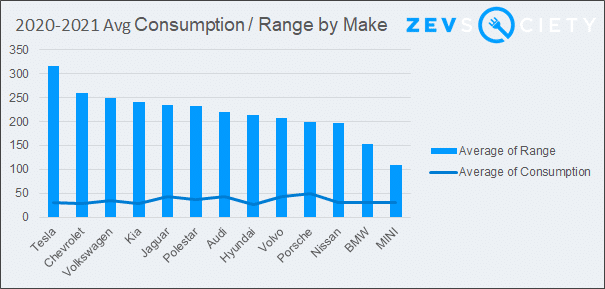
Answer: It ranges, ha ha ha….
17. How Much Does an Electric Car Weigh?
We dug into all 2020 and 2021 electric vehicle variations tested by the EPA and their tested weight. This gave us 185 weight data points to look at, and the average electric vehicle came to 4664.06 lbs.
We did the same comparison to gasoline vehicles (779 data points) and this average came to 4446.60 lbs.
Therefore, on average an electric vehicle is a bit heavier than its gasoline counterpart.
Answer: On average 4664.06 lbs.
18. Will Electric Vehicles Last More Than 500,000 Miles?
All vehicles, including gasoline, have many components that are subject to failure. If one consistently maintains the vehicle and replaces any failed components there is no reason you can’t achieve high mileage. It is highly unlikely that any car with an odometer reflecting a true 500,000 miles driven has not had a single component replaced.
It is hard to provide facts without relative data points since electric vehicles are relatively new. This company here did a comprehensive write up on its fleet of Tesla vehicles. These vehicles have achieved 300-500,000 miles. This of course does not go without regular maintenance and repair.
According to a report, the cost per mile is relatively lower than a gasoline vehicle. Early data like this shows promising signs of the longevity and overall cost for electric vehicles. We anticipate more data to surface over time and the picture will then be made very clear.
Answer: Yes, with regular maintenance and repair.
19. Do Electric Cars Pollute More Than Combustion Cars?
Go read some further detail in question 3 with an in-depth report from Polestar.
We believe a major concern and focal point of electric vehicle skeptics is the battery. Where will all the dead batteries go? Fortunately, this is a topic under heavy research and focus. Regulators are enacting legislation that will require automakers to be responsible for these replaced batteries.
The main objective is to keep batteries out of landfills. The majority of batteries after their car life usage can still be utilized for alternative things. Backup batteries for homes, batteries reconfigured for appliances, and even powering car charging stations. Programs must be set up to recycle end of life vehicle batteries.
With proper due diligence, we can reduce pollution from batteries and their components on the environment.
Answer: No, over their life the carbon footprint is on average less than a gasoline vehicle.
20. Are Hydrogen Vehicles Better Than Electric?
In regards to their carbon footprint, after quick research hydrogen vehicles would appear to be a better per mile alternative. Studies show the average carbon dioxide output of a hydrogen vehicle is about 16 kg CO2 per 100 km (62.13 miles). For the electric vehicle, it stated 21.99 kg CO2 per 100 km (62.13 miles).
Electric vehicles are entirely dependent on the plant that produced the electricity. The U.S. Energy Information Administration reported on carbon dioxide per kilowatt-hour in 2018. Let’s unpack this information for a deeper dive.
The report claims that all energy sources combined on average produce .99 lbs (.45 kg) of CO2 per kWh.
Average electric vehicle consumption if you recall from previous questions is 33 kWh per 100 miles or 100 MPGe. Which is .33 kWh per mile and .20 kWh per km. With the previous 15,000 miles (24,140 km) per year or 75,000 miles (120,700 km) over 5 years. That equates to 24,750 kWh’s over 5 years and 4,950 kWh every year.
At .99 lbs (.45 kg) per kWh, the average vehicle would produce 24,502.5 lbs (11,114 kg) every 5 years or 4,900.5 lbs (2,222 kg) every year.
Hydrodren Production
Hydrogen production is claimed to amount to .62 lbs. (0.28 kg) CO2 per kWh. When you look at a hydrogen vehicle like the Toyata Mirai which gets 67 MPGe or roughly 50 kWh per 100 miles. .5 kWh per mile or .31 per km. 37,500 kWh over 5 years, 7,500 kWh per year. 23,250 lbs. for 5 years (75k miles) or 4,650 lbs per year would be the overall carbon output.
Keep in mind we are excluding manufacturing emissions from this as there really is not much data on the emission repercussion of hydrogen vehicle manufacturing.
Our numbers did not match the original study for Hydrogen vehicles, but the electric cars were quite close therefore we cannot imagine the math is wrong. (please correct us if you see something!)
The overall hydrogen fuel cell vehicle does not really appear to be a better alternative.
Answer: A little, but not enough to make an impact.
21. Do Electric Cars Make Noise?
By themselves, not really, especially compared to a gasoline vehicle. In fact, EV’s are so quiet that NHTSA has mandated that EV’s emit artificial noise over 18.6 mph.
Now, this makes us wonder, will NHTSA mandate a specific sound? Or can we have an electric vehicle that quacks like a duck continuously? How about a Star Wars Tie Fighter sound, what! Let me have it. (we want royalties if someone does this) Additionally, will there be a maximum decibel output to this sound? Imagine getting a ticket because your futuristic TIE fighter EV is too loud. Hahahaha
Back to seriousness, some manufactures are taking sound production to the next level. Check out Audi’s etron GT.
The electric vehicle sound output has a lot of potential and will be an exciting thing to see what is offered.
Answer: Not naturally, they will have a sound generator.
We have more questions we plan to tackle in the future, we will start listing them below and get to them soon! If you would like to contribute to this piece please reach out to us!
22. How Much Can an Electric Car Tow?
Great question, we will find out the average tow capacity and get all the details!
23. Can I Convert a Gasoline Vehicle Into an Electric Car?
Yes, we believe you can, there are some cool concept companies out there, more to come.
24. Does Cold Weather Affect an Electric Car?
It does, and we will dive into the details of the impacts.
25. Does Warm Weather Affect an Electric Car?
Warm weather also has an impact on EV’s and we will get to the details.
26. Can You Drive an Electric Car In a Flood?
This one might be tough to answer. We are going to assume no!

